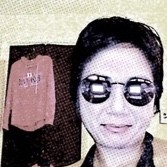From Duke Black Alumni
We, the current and former leadership of Duke Black Alumni, write this letter to the Duke community to strongly condemn the Letter to the Editor entitled “It’s not all racism” from Charles Philip Clutts ‘61 printed in the Winter 2020 edition of Duke Magazine. It is 2021, and we thought that society, and particularly Duke, had moved past these harmful, racist stereotypes of Black Americans, but sadly that is not the case.
We can no longer pretend that Duke is not a place where such destructive views would find no refuge – obviously Duke Magazine printed a letter with clearly racist stereotypes of Black Americans. The publication of the letter does however, raise several questions and concerns beyond the racist rantings of a single alumnus. As believers in the First Amendment and free speech, we acknowledge that Mr. Clutts and other alumni hold such baseless views, but the problem here is that Duke Magazine published a blatantly racist letter without any context, disclaimer or opposing views from University leadership. How can Duke use this moment (and many others) to truly become the anti-racist institution it aspires to be?
Let’s deal with the easiest issue first. Charles Clutts is wrong in his outdated and racist stereotypes about Black people. In a few short paragraphs, he recites virtually every negative stereotype that has been attached to Black Americans since the dawn of America, so we won’t dignify them with a response. More concerning is that he felt free to espouse these racist views and that Duke Magazine - as the official voice of the University - gave him a worldwide platform to spread this hurtful nonsense with no context or alternative voices.
We note that Mr. Clutts graduated from Duke two years before the first Black students were admitted, which clearly demonstrates why a diverse student body is so necessary. While the Duke of 1961 was a great regional University, it was nowhere near the global powerhouse that it is today. Today, unlike the 1960’s era, the University boasts an acceptance rate in the single digits making it one of the most competitive and sought-after universities in the world. The University’s success can be attributed to many factors, but certainly a major factor is the increasingly diverse student body, including Black people from the U.S. and around the world, and increasing numbers of Latinx and Asian American and Pacific Islander students. Duke should celebrate that diversity and recognize it as the primary driver of excellence at the University, and certainly not supply oxygen to outdated racist stereotypes.
This brings us to a deeper concern. How could the flagship publication of Duke print such obviously racist tropes? We would be similarly outraged with anti-Latinx, Native American, Asian American, LGBTQ+ or anti-Semitic stereotypes, but it is particularly galling to see the publication of this letter in 2020 – the year of George Floyd and a reckoning with America’s systemic racism. Just last week with the vulgar insurrection at the U.S. Capitol, the whole world witnessed the devastating consequences of unchecked White Supremacy. This brings us back to Mr. Clutts’s letter.
Did no one at Duke Magazine or the Allen Building have concerns about printing this content? Was there a diverse team in the editorial room to understand how this would land on the Black community and other communities? For many in the Duke Black community it added insult to injury for this letter to be printed in the same issue that featured retiring Executive Vice President Tallman Trask on the cover. Mr. Trask certainly had a noteworthy career at Duke transforming the campus space and navigating COVID, but for many alumni of all races, the 2014 incident of an alleged racial slur against a Black parking attendant still stings, especially without any public accountability. For all of these issues, it shouldn’t always be incumbent upon the Black community to address racial incidents or insensitivities. For Duke to become the university it strives to be, active anti-Racism is everyone’s business. Duke Magazine, along with all University leadership, must employ more care when choosing which voices to elevate. Certainly, while perhaps not Duke Magazine’s intent, advancing the voice of a white alumnus who shifts the blame of systemic racism entirely onto impacted minority communities and asserts negative narratives about Black Americans as if they are facts, without any context or disclaimer from University leadership, is tantamount to condoning racism.
This brings us to our final point. We hope that this issue of Duke Magazine can serve as a teachable moment for confronting systemic racism head on, especially since University leadership has issued a clarion call for Duke to be an anti-racist institution. Indeed, because of its history and location in the South, Duke has a unique responsibility and opportunity to lead the way on confronting racism and celebrating Black excellence. It will require hard work from the entire community: students, alumni, faculty, administrators and staff. Change cannot only come after crisis or controversy; more introspection and proactive work is necessary.
Duke must continue to publicly celebrate the legacy of Black excellence that has always been in its midst and has contributed significantly to Duke. Just a few examples: some alumni may not know that famed architect Julian Abele designed many of the prominent spaces on Duke’s campus, including its main quad decades before he could even set foot on the campus.[1] Duke Professor Emeritus John Hope Franklin was widely viewed as the foremost scholar in African American history, and ended his storied academic career at Duke. In the late 1960’s Samuel Dubois Cook was the first African-American to hold a tenured faculty appointment at a predominantly white college or university in the South. Mary Lou Williams is widely viewed as a preeminent female jazz composer and instrumentalist, and spent the last several years of her life teaching at Duke, and left a legacy of scholarship and service. Every alumnus should know about this rich legacy of black excellence at Duke.
Many parts of the University should be consulted and engaged in these efforts, including the world-renowned Department of African and African-American Studies (“AAAS”), Center for Truth, Racial Healing & Transformation, the Samuel Dubois Cook Center on Social Equity, The John Hope Franklin Center for Interdisciplinary and International Studies and the Mary Lou Williams Center for Black Culture. Duke Black Alumni stand ready to partner with anyone interested in cross-racial understanding, civility and progress. We have demonstrated this through programs such as our lecture and conversation series “Black in 2020” that has already reached thousands of alumni, faculty and students in engaging scholarship and dialogue.
In short, racism must be confronted head-on. For a University that counts as alumni Stephen Miller and Richard B. Spencer[2], a self-proclaimed Neo-Nazi, Anti-Semite and white supremacist, who led the 2017 white-supremacist march in Charlottesville, racism (and other bias) can no longer be quietly tolerated. It is time for active dialogue and to frontally attack such misguided views, which may be held by more people than we’d like to admit. We challenge others to join us on this journey of racial understanding and reconciliation.
But before that can happen, we demand a formal apology from Duke Magazine and University leadership to the entire Duke Black community (students, alumni, faculty and staff) who for too long have had their very existence at the University questioned and endured all forms of subtle and overt discrimination. Then let’s all roll up our sleeves and get to work.
Sincerely,
Danielle Squires '02
Immediate Past Co-Chair, Duke Black Alumni
Tadena Simpson '05
Co-Chair, Duke Black Alumni
Sanders Adu '94
Co-Chair Duke Black Alumni
Harry Jones '08, AM '10
Co-Chair Elect, Duke Black Alumni
1 See https://today.duke.edu/2016/10/quad-dedication-brings-julian-abele-out-shadows; https://spotlight.duke.edu/abele/.
2 According to his Wikipedia Page, Richard B. Spencer was a PhD candidate at Duke from 2005 – 2007, but later withdrew before obtaining a degree https://en.wikipedia.org/wiki/Richard_B._Spencer.
From President Vincent E. Price
I have said before that as we seek to build a truly equitable university and root out racism on our campus and beyond, we won’t always get things right and will make some mistakes along the way. Unfortunately, we recently made a mistake by publishing a letter in the Duke Magazine, one that has sadly eroded the trust and mutual respect so vital to our work promoting equity and justice.
Duke Magazine seeks to provide a lively and engaging forum for our entire alumni community and is run by the Duke Alumni Association. But it is, ultimately, a university publication, and as president I accept full responsibility for the content. I also apologize for the hurt to many that publishing the letter has caused. I’m sorry, not because the words or ideas expressed in the letter are ours—they plainly are not—but because in publishing it, the magazine, and through it our university, gave added voice yet again to precisely those tropes that have too long brought their oppressive weight to bear on our Black community.
As the open letter from leaders of Duke Black Alumni explains here, whatever the intentions of the author or editors, publishing it in this visible forum has only sowed doubt as to our institutional sincerity, our sensitivity to the many ways that persistent and misguided ideas about race have very real and pernicious consequences, our resolve to act differently and deploy our voice more thoughtfully.
As a scholar of media and political communication in particular, I am deeply committed to free and open expression, and I recognize its vital importance to higher education. But Duke Magazine is not intended to be nor expected to be a common carrier or completely open platform for speech; readers correctly perceive it as carrying the imprimatur of our university. Invocations of free speech can too easily be used to absolve those of us with editorial power of our responsibilities to exercise it wisely, and justly. We may not own the words, but we do own the amplifier and with it the consequences of broadcasting.
What to do? I share with my colleagues who create Duke Magazine and with our Black alumni the hope that this incident can serve yet as a teachable moment for confronting systemic racism. The pieces presented here are in service of that goal, seeking to explain and understand, to listen and to speak with respect for each other and in the hope of progress. This moment provides us with an opportunity to renew our commitments to a stronger, more inclusive future—and to do better by our alumni, students, colleagues and neighbors. These commitments are outlined in the Anti-Racism Initiative we launched in October, an effort that—while still in its early stages—is well underway. I am grateful for the many ways that alumni have already supported this initiative, and I am always open to your feedback about what we can do better.
At Duke, we have the opportunity and responsibility to harness what President Crowell once called the collective moral endowment of this community, to make real the notion that together—through our shortcomings and our triumphs, through our discoveries and our service, and yes, even through the hard work of learning from our mistakes—we can become an engine of positive change for the world. I believe that this is our deepest mission, one that will guide us to a brighter future ahead.
Vincent E. Price
President, Duke University
From Duke Magazine
“To love this country and to love humanity is to push humanity constructively to be a better form of itself, and there’s no way we’re going to be a better form, there’s no way we can build a better humanity, while we still have on the shackles of racism.” Dr. Ibram X. Kendi
When we sent our Winter 2020 issue to the printer, we knew it had content that might elicit a strong response from readers. But we did not expect our Letters & Comments section to become the focus.
Our longstanding editorial philosophy has been to confront difficult issues, not dodge them. Within the framework of pride, nostalgia, and storytelling, we aim to tell accurate stories about the university and its community.
The letter from Charles Clutts ‘61 was one of about ten we received in response to an article about the Kerner Commission in the Summer 2020 issue. Those letters ranged widely in tone. We chose to publish several that represented the points of views of those who wrote us.
We pick letters to include without considering whether we agree or disagree with the content. But we also understand that by publishing a letter in Duke Magazine, we are amplifying it.
We now know that our execution was deeply flawed. Worse, it caused harm to Black alumni, in particular, and the Duke community at large. We recognize our mistake and apologize for causing harm.
We want to ensure that the magazine is not just publishing stories about anti-racism but also demonstrating anti-racism itself. We believe publishing the Clutts letter was an act in the spirit of anti-racism. This belief stems from our reading of the work of Ibram X. Kendi, the author of How to Be an Antiracist.
- --Kendi argues against using “racist” as a fixed category, as an identity.
- --He advocates for treating “racist” as a descriptive term that describes what a person is saying or doing in any given moment. That means if a person in one moment is expressing a racist idea, in that moment they are being racist.
- --Kendi also talks about denial being the heartbeat of racism. “These denials using these phrases come from both conservatives and white liberals who think people of color are stuck in cycles of unstable families and criminal cultures, and that the deprivations of poverty and discrimination spin out bad people.”
We printed the piece with these ideas in mind. We believe the responses to this letter—to any letter we publish—is a valuable exchange that should happen within the alumni community.
In the last two weeks, we’ve been in conversation with many in that community and we’ve read the letters sent in response to our decision and subsequent apology. We reached out to some of those who wrote us as well as others in the community and asked their thoughts on what happened and how we could do better and move forward.
We’ve learned we haven’t been transparent enough about our processes. Mark Anthony Neal, James B. Duke Distinguished professor of African and African American Studies, first learned about the letter from Twitter. He said he thought it was the correct thing for the magazine to print the letter “because it gives some sense of how far the university still has to go on all these issues of race, and for the university to be also very clear about what some of its alumni base looks like.”
But that brought him to this question: “Was there an editorial framing around the letter, that at least folks would have some sort of context for its publication?”
Vanessa Saavedra J.D. ’04 talked more about this. “I actually went through the front matter in the magazine to see if there was a disclaimer about letters being not the opinion of the magazine. I was also looking to see what the mission statement of the magazine was… if it was to represent Duke, if it was to be an objective reflection, just anything to give some guidance about the letter’s appearance there.”
“Without the context, without the wrapper…of what you guys were trying to accomplish, I was left feeling like the university was attacking me,” said Ed Magee M.B.A. ’04
McKinley Melton ’04, a former student intern at the magazine, said that without the proper framing, “The more thoughtfully anti-racist choice…would simply be to not publish it and not provide a platform within a magazine that is the leading voice of the university to showcase ideas that are lacking in intellectual depth, not in keeping with the university’s values, and are disrespectful to its community.”
This lack of transparency was especially costly in this case. Without an explanation of our goal that the magazine demonstrate anti-racism by fostering a conversation about racial stereotypes, the letter was robbed of context and our readers were robbed of what might have been a helpful and meaningful exchange.
We’ve learned that, while in the past, the Letters & Comments section worked as a forum, for challenging topics like race, the approach has flaws. Social media moves fast. The three-to-four-month gap between print issues is too wide for an exchange of ideas.
Luke Powery, dean of the chapel, told us that confronting racist ideas begins by recognizing a shared humanity in such interactions—however uncomfortable those interactions might be. And he spoke of opening ourselves to the presence of grace. “It’s funny that ‘race’ is embedded in the word ‘grace.’ One needs grace to even recognize the need for truth, the need for justice. Grace is the power that allows us to move in the direction of racial healing—really, of human healing. Any healing, any sense of community, comes as an act of grace. The same grace that’s been extended to us at various points in our human journey we need to extend to one another. Grace allows us to hope, to hope for the healing, to hope for something better, even in the midst of despair and tragedy.”
From those discussions, we’ve come up with some solutions to carry us forward:
- --Starting in the Spring print issue, you’ll see a change in our Letters & Comments section. The box, with basic information about submitting information, will run at the beginning of the section. We’ll add a disclaimer to make clear that the letters’ opinions belong to the writers alone.
- --We will develop a digital plan to support more and faster responses to letters to facilitate greater community dialogue around difficult topics like race. We’ll also reprint a selection of those responses in the next print edition.
- --We will continue to examine the way we tell stories about the Black community and other underrepresented communities. We’ve already developed a project with the John Hope Franklin Humanities Institute’s Story+, a six-week paid summer research experience. Through textual analysis and oral history, the project will examine how Duke Magazine has told the story of the university’s Black community. By examining our past language and story choices, we hope to ensure we move forward in an anti-racist framework.
- --In the future, our words, our choices and our stories will advance the values of Duke as a daily act of anti-racism.
We welcome your thoughts about this reflection.
Dave Kennedy
Vice President of Alumni Affairs and Development
Duke Magazine staff
The views and opinions expressed here by alumni and faculty belong solely to the authors, and do not necessarily represent any official positions or policies of Duke University.









Share your comments
Have an account?
Sign in to commentNo Account?
Email the editor